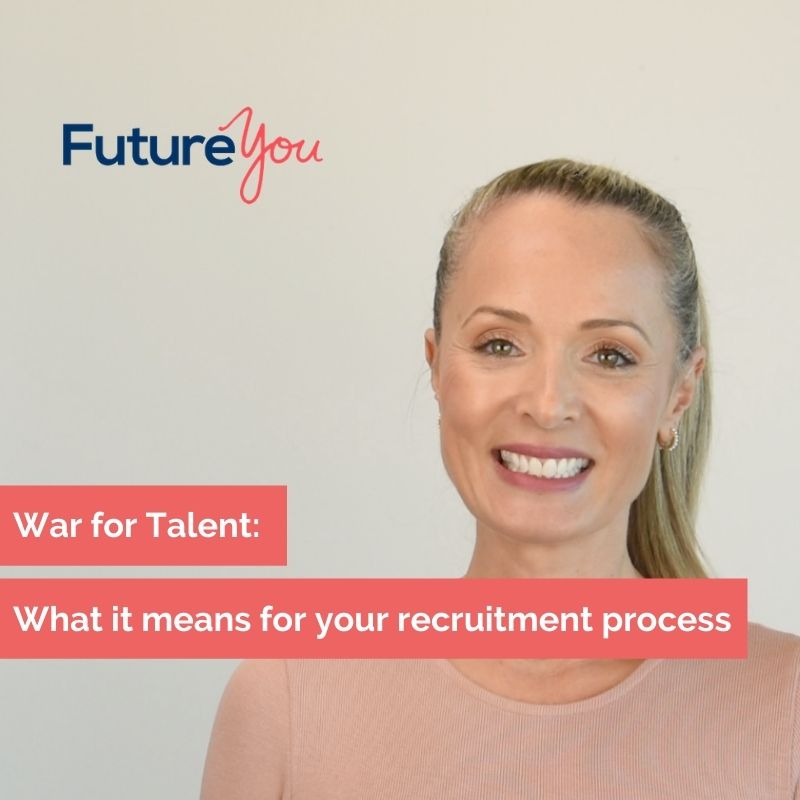After the most volatile and unpredictable times, what is the state of the current talent market? Having had to make tough decisions to reduce headcount to cut cost and survive, many businesses are now thriving and needing to attract & secure talent to grow their businesses to pre pandemic heights.
The challenge? A lot of businesses are in the same situation.
The numbers are rather eye-watering. In May 2021 SEEK announced that at no time in its 23+ year history had more job ads been posted on the platform. In fact, May was the second record month in a row.
At the same time, the number of people applying to those roles was at its lowest levels since 2012 – almost a decade ago. This situation is even more acute in highly skilled and specialist spheres like executive recruitment.
There are candidate-driven markets, then there is this candidate-driven market. The demand for talent is sky-high, the supply of talent is incredibly low, and employers are left to battle it out to secure the best.
So, how do you come out on top in this war for talent?
Be the seller, not the buyer
In a candidate-driven market, you don’t choose top talent, top talent chooses you. You’re no longer the buyer, hand-picking the very best candidates from a bunch. You need to switch your mindset to that of the seller, telling and showing top talent exactly why they should choose you.
Realise that in an interview setting, you might be answering just as many questions as the candidate is, because they’re interviewing you just as much as you’re interviewing them. Be aware that your answers will go a long way to determining whether you secure the services of top talent.
But what exactly do those answers look like?
Understand what motivates candidates
Ask yourself: why would a candidate choose you over a competitor? More pertinently, why wouldn’t they choose you? At this point you should work to develop a compelling employee value proposition (EVP) – what your organisation offers its employees in return for the skills, capabilities, effort and experiences that they bring to your company – made up of the following elements:
Purpose, values and vision
Often top talent is less motivated by money than they are by purpose and meaning in their work. So ask yourself, what is your organisation’s reason for being?
Evaluate your purpose, values and vision. Once you’ve set these things in stone, display them for all to see across your website. This not only lets potential employees view these aims, such a public statement also serves to make you accountable in hitting them.
Communicate your values throughout the hiring process. If certain candidates don’t align with these values, so be it – you can be confident that they’re not the right fit.
Work environment and culture
Your purpose, values and vision will lay the foundation upon which you can build your company culture. Evaluate the personality of your company: are you highly skilled and perfectly professional? Fun and innovative? Empathetic and community-minded?
If you haven’t already captured your company culture, your current team members can help you describe or shape it. In fact, this may be the perfect time to take a step back and see what you could be doing better! Listen to employees, and take action based on their recommendations.
The office environment is still really important, the place where collaboration and culture come alive. Is your work space inviting and the best it can be?
Financial Rewards & Benefits
While not the be all and end all, there’s no doubt that salary and benefits will factor into the decision of top talent in a candidate-driven market. Along with a competitive salary – based on what the external market thinks the employee is worth, not what you think the employee is worth – consider offering the following:
Benefit packages
● Technology stipends
● Healthcare
● Paid time off (maternity/paternity leave)
● Flexible work arrangements (remote work/choose your own hours)
● Company shares
Professional development
● Internal training opportunities
● Subsidised or fully-funded external education
● Mentorship programs
● Opportunities to network or join professional organisations
The greatest demand for talent in at least 23 years, paired with the lowest supply of talent for nine. Employers are currently experiencing the perfect storm of job market conditions, in which the balance of power has skewed dramatically to the candidate.
But that’s not to say you’re powerless. By going to the candidate, understanding their needs and wants, and reflecting these insights in your EVP, you’ll have a far greater chance of winning the talent war.
And if you need help, our friendly team at FutureYou is ready to offer it! Email us at info@future-you.com.au today.
Related Articles:









